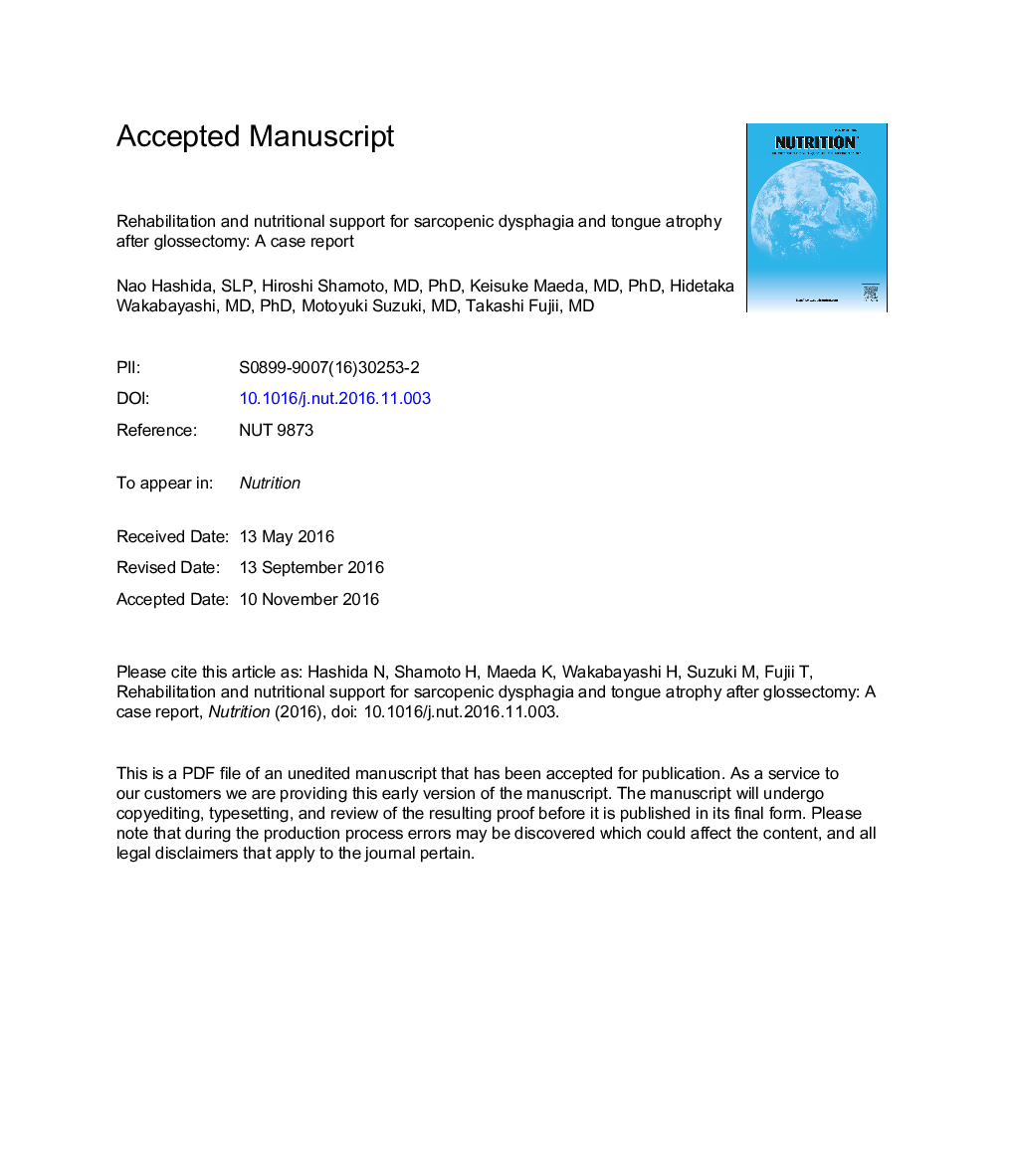| Article ID | Journal | Published Year | Pages | File Type |
|---|---|---|---|---|
| 5657020 | Nutrition | 2017 | 22 Pages |
Abstract
Swallowing dysfunction is related to long-term weight loss and reduced body mass index in patients with head and neck cancer. We describe a 76-y-old woman who had severe sarcopenic dysphagia and atrophy of the reconstructed tongue for 17Â mo after subtotal glossectomy due to tongue cancer and lost 14Â kg during that period. Upon admission, the patient received diagnoses of malnutrition in the context of social or environmental circumstances with insufficient energy intake, loss of muscle mass, localized fluid accumulation, weight loss, and sarcopenia due to reduced skeletal muscle mass (skeletal muscle index <3.95Â cm2/m2) and low walking speed (<0.8Â m/s). She was not able to eat anything and had a functional oral intake scale level of 1 and penetration-aspiration scale score of 7 points on video fluorography. We increased the nutritional intake to 1900Â kcal/d and protein intake to 70.3Â g/d by supplying sufficient excess energy, and provided physical therapy and dysphagia rehabilitation to improve sarcopenia, atrophy of the reconstructed tongue, and dysphagia. After 20Â mo of treatment, she was considered to be no longer malnourished (11Â kg weight gain) and without sarcopenia (skeletal muscle index 4.01Â cm2/m2), and the volume of the reconstructed tongue was increased. Sarcopenia and atrophy of the reconstructed tongue may cause dysphagia after glossectomy due to tongue cancer. Additionally, nutritional support and rehabilitation could improve such dysphagia.
Related Topics
Health Sciences
Medicine and Dentistry
Endocrinology, Diabetes and Metabolism
Authors
Nao S.L.P., Hiroshi M.D., Ph.D., Keisuke M.D., Ph.D., Hidetaka M.D., Ph.D., Motoyuki M.D., Takashi M.D.,
